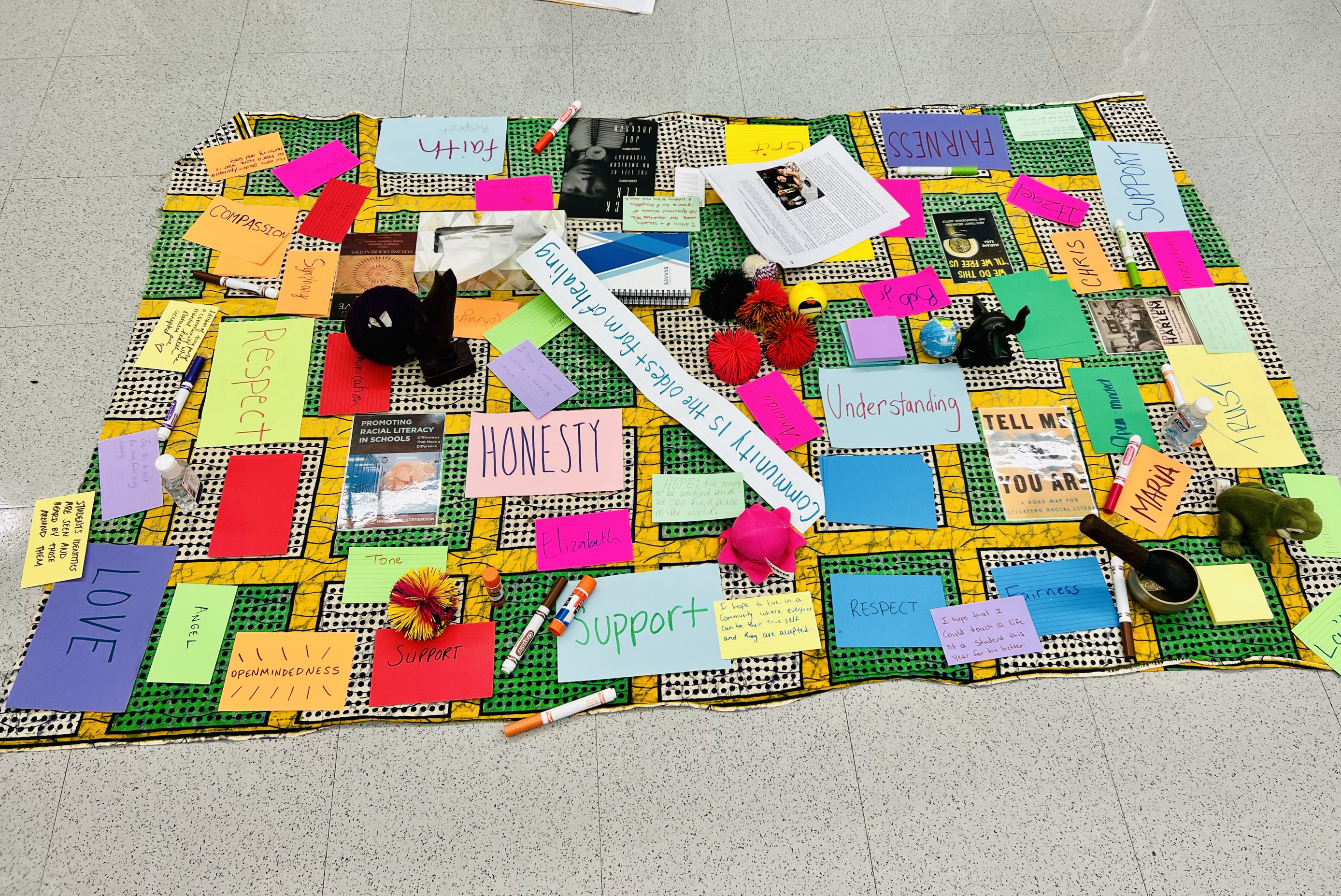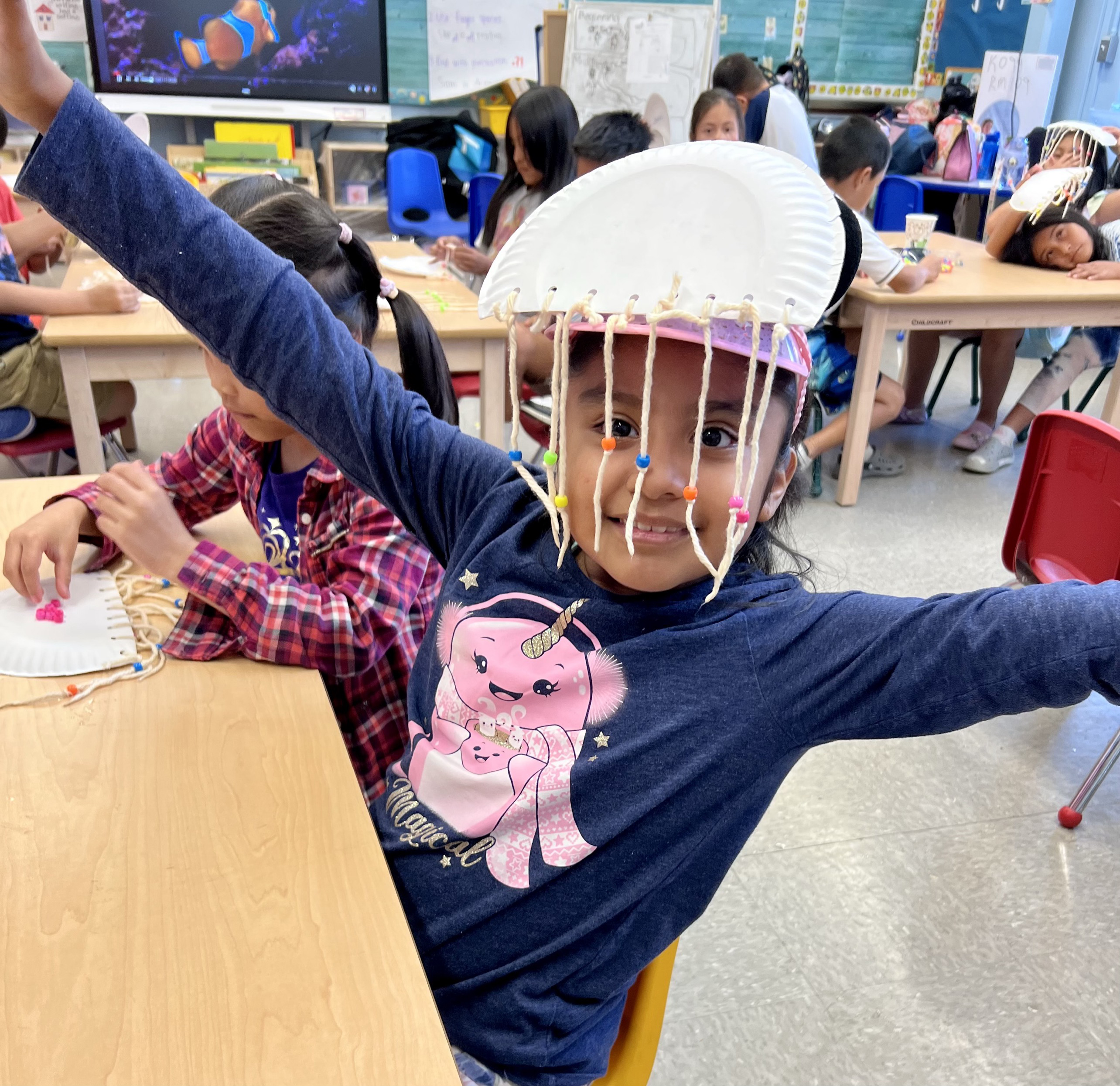Why Joy Matters
As part of Circle training on the first day we read a few short pieces, works about big concepts in education—like power, authority… and joy. The question was raised, why does it matter for our children to experience joy at school?
As part of Circle training on the first day we read a few short pieces, works about big concepts in education—like power, authority… and joy. The question was raised, why does it matter for our children to experience joy at school?
As the new writer/editor/storyteller at Morningside Center, I have the privilege and responsibility to write about our work from a few points of view. But perhaps the most important will always be—why it matters.
 As an employee for just twenty days, I considered myself incredibly lucky to be able to participate in our NYC DOE Tier 1 training: five summer days shared with educators from across our city learning about using community-building Circles in school, and racial awareness and equity. (If you don’t know what Circles are, stay tuned—posts to come!) As part of Circle training on the first day we read a few short pieces, works about big concepts in education—like power, authority… and joy. The question was raised, why does it matter for our children to experience joy at school?
As an employee for just twenty days, I considered myself incredibly lucky to be able to participate in our NYC DOE Tier 1 training: five summer days shared with educators from across our city learning about using community-building Circles in school, and racial awareness and equity. (If you don’t know what Circles are, stay tuned—posts to come!) As part of Circle training on the first day we read a few short pieces, works about big concepts in education—like power, authority… and joy. The question was raised, why does it matter for our children to experience joy at school?
Excellent answers ranged from “learning should be a joyful experience,” to “the world is hard enough outside of school, having joy in school helps,” and “learning is hard, too—having some joy in school helps to ease that.”
Yet I found myself remembering a short conversation I’d had a week earlier with a medical administrator heading five major departments at a big, renowned NYC hospital. He said he wanted his employees to be happy at work because research shows if they are happy at work, they’re more productive, stay longer, and the organization does better, more impactful work. Even though he advocated for ‘workplace happiness,’ I found myself disturbed by his rationale for days before Tier 1 began.
In too many ways, Americans are used to work and school being places where some of the darkest aspects of the dominant cultures are played out again and again. One dark aspect I have long observed in both school and work is a persistent demand that we compartmentalize ourselves at work and school. Both school and work in the United States have long been framed by the top priority, and no one in the US needs to be told what that priority is. Productivity. For the simple reason that productivity is tied inextricably to profit.
There it was: the medical administrator advocated for happiness at work, not because it embraced his employees’ humanity—but because that (embracing their humanity) brought the hospital productivity.
Yet even this well-meaning administrator has, for too long, been an anomaly. That Americans have for decades been told to compartmentalize ourselves, to leave our personal lives at the door, leave our desire for joy and connection at home, should be a massive red flag about who these organizations think we are—or should be, and the values that commandeer our humanity.
 So, I want to suggest another reason to center joy at school (and work): joy is a human need. Because joy is one of the greatest of our human capacities. Because we don’t just have the right to be whole human beings in every area of our lives—but in fact cannot be anything but our whole human selves without suffering incredible harm. Because we should push back against any system that attempts to dehumanize us for any reason (perhaps one of the ugliest of which is for profit). Because any system that demands our consistent compartmentalization is demanding that we deny an inextricable truth of our humanity: that we cannot in fact dissect ourselves, and that to do so causes—as American history proves over and again—unspeakable tragedy. Because of all the parts of ourselves that we might put in a temporary shoe box to get through the day, joy may be among the most damaging.
So, I want to suggest another reason to center joy at school (and work): joy is a human need. Because joy is one of the greatest of our human capacities. Because we don’t just have the right to be whole human beings in every area of our lives—but in fact cannot be anything but our whole human selves without suffering incredible harm. Because we should push back against any system that attempts to dehumanize us for any reason (perhaps one of the ugliest of which is for profit). Because any system that demands our consistent compartmentalization is demanding that we deny an inextricable truth of our humanity: that we cannot in fact dissect ourselves, and that to do so causes—as American history proves over and again—unspeakable tragedy. Because of all the parts of ourselves that we might put in a temporary shoe box to get through the day, joy may be among the most damaging.
Indeed, it is our joy that points us toward those things most worth pursuing in life—connection, collaboration, creation, hope, imagination, community, curiosity, envisioning a world we can only make when we embrace our whole humanity.

Indeed, joy may be an experience of our humanity most essential to growing a culture and a society that we most want for our children.
There are so many ways to rage against the snuffing of our light*. So very many ways to embrace our full humanity. So many ways to deconstruct structures of oppression and theft, to root out the poison tree. Yet, of these, which are as beautiful, as celebratory, as worthy a way to embrace our fullness and recreate our society… as joy?
Why does joy matter then? Because joy sees us in our full humanity.
As the newest member of Morningside, consider me—quite literally—overjoyed to work for an organization that believes joy is a birthright and brings it into every classroom.
*Dylan Thomas, Do not go gentle into that good night